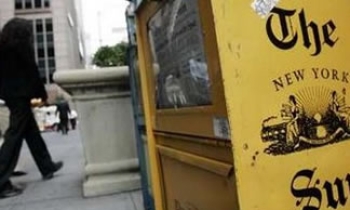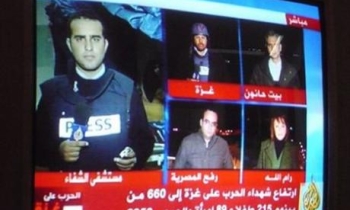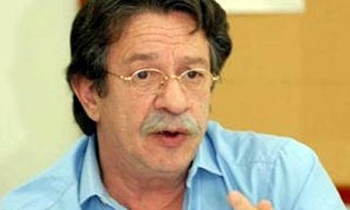Karachi, 8 March (AKI) - For Syed Saleem Shahzad, correspondent for Italian news agency Adnkronos International (AKI), the news of the capture of Italian reporter Daniele Mastrogiacomo in southern Afghanistan brings back vivid memories. Last November Shahzad along with another Pakistani reporter, Qamar Yousafzai, was seized in the restive Helmand province by Taliban fighters who accused the two men of being spies.
"When I heard they wanted us to go before a Muslim judge, I knew they wanted us to sweat with fear," says Shahzad recalling the most harrowing moment of his captivity.
The Taliban who are accusing Mastrogiacomo of being a spy have indicated they want the Italian journalist to be judged according to Islamic Sharia law.
Last November Shahzad was in the remote Baghran district to report for AKI on Taliban bases in Helmand province and had interviewed several Taliban commanders. The Taliban District Commissioner in Baghran - who uses the single name Matiullah - granted Shahzad an interview but suddenly became suspicious, questioning the AKI reporter's credentials as a journalist and demanding to know how he managed to enter the remote district.
Matiullah reported his suspicions to the so-called Taliban governor of Helmand province, Mullah Abdul Rahim, who also questioned the reporters' presence in the area.
For the next five days the two journalists were refused permisssion to leave.
"The local Taliban gave their superiors the impression we were British journalists because we spoke some English and because of our video recording eqipment."
"Of course they could see we were Pakistani, but by then they still felt they had to accuse us of being spies, almost as a face-saving gesture with their superiors," Shahzad explains.
Shahzad believes that his detention was a sign of naivete of the Taliban in that they "don't know how to handle the press." Once they raised their suspicions concerning his identity they mostly spoke to him through local village elders.
"I was the guest of the local tribal elders. I had travelled to the area with their permission. I felt I was under their protection," says Shahzad explaining how this conviction helped him cope with the danger he was facing.
The Taliban and the elders argued over the situation, with the Islamist fighters at one point demanding that Shahzad and his colleague Yousafzai be brought before a Muslim judge.
But the elders insisted that the two reporters remain in the hands of the villagers during the time required to obtain information on their identities.
Eventually a tribal council or a jirga was set up to decide their fate and it was agreed that the two Pakistani reporters would remain in the area for three nights while their cameras and equipment were checked.
"We were kept in the house belonging to the local prayer-leader which was next to the mosque, and from that time on the Taliban mainly communicated with us through the local elders," Shahzad explains.
What followed was a flurry of telephone calls using a satellite phone borrowed from local villagers which Shahzad used to contact friends in Pakistan who in turn contacted Taliban leaders to confirm that two men were indeed journalists.
Finally after five days of captivity, the message got through to the local Taliban that Shahzad and Yousafzai were indeed reporters.
Their camera equipment was returned and they were told they were free to leave.
"The Taliban must have been embarassed by the whole situation, because we never saw them in person when we were released. Even our equipment was returned to us through the villagers," Shahzad said.
The two journalists left Baghran district in a car but a flat tyre in a deserted area delayed their journey home, forcing them to spend a night at Musa Qala, where Yousafzai developed a high fever. They then headed on to Gresh and then Kandahar and finally to Chaman.
"Local journalists and politicians were at the border to welcome us back," Shahzad fondly recalls.









